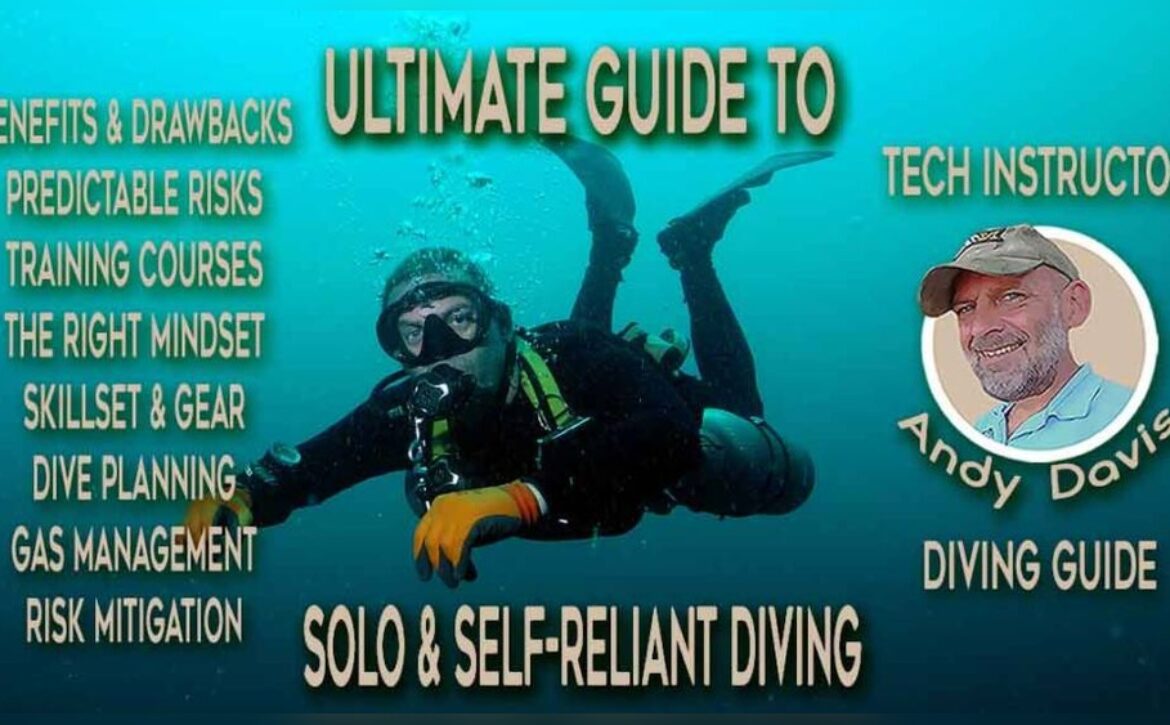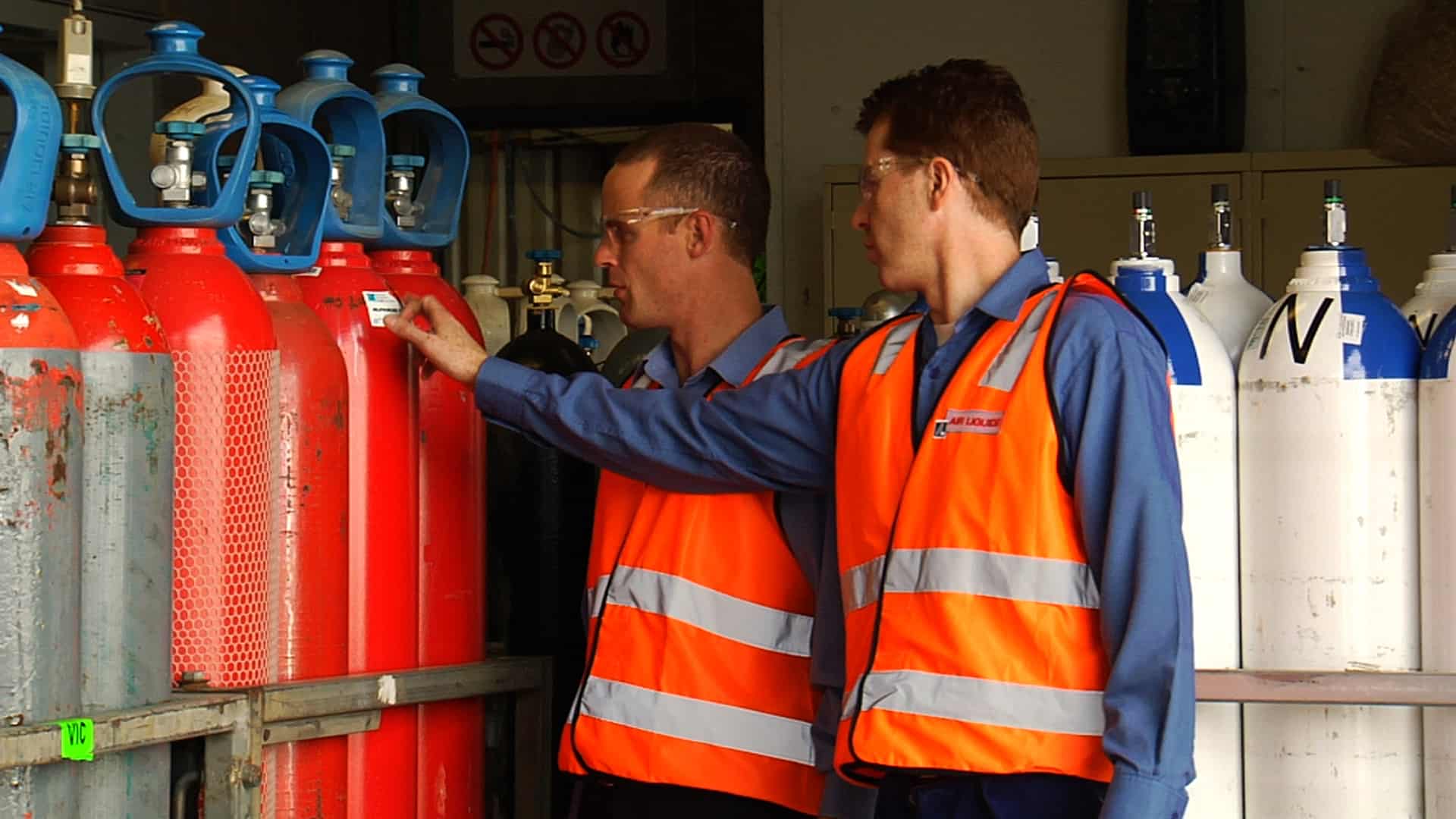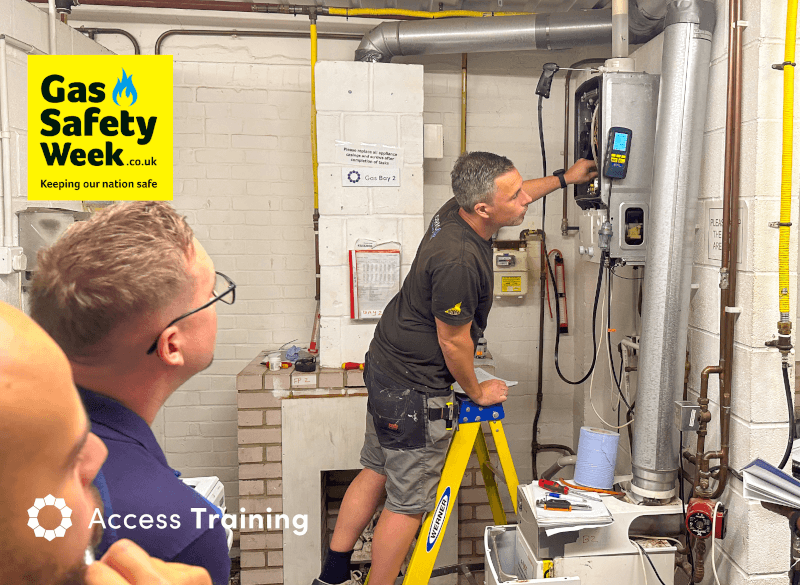
How to Become a Gas Safe Course: Essential Guide
Are you considering a career in gas safety, or perhaps looking to enhance your skill set? You’re in the right place.
Learning how to become Gas Safe certified is not only a smart career move but also a step towards ensuring the safety of countless homes and businesses. Imagine the confidence you’ll feel knowing you possess the skills and credentials that are highly sought after in the industry.
This guide is designed to walk you through every step of the process, from understanding what the Gas Safe certification entails to finding the right course for your needs. Let’s dive into the essentials that will equip you with the knowledge and expertise to excel in this field. Keep reading to discover how you can turn your ambition into a valuable qualification.

Importance Of Gas Safety
Gas safety is crucial for preventing accidents and ensuring well-being. Enrolling in a gas safe course equips individuals with essential skills to safely manage and handle gas systems. This training enhances safety awareness, reducing risks in homes and workplaces.
Gas safety is crucial. It ensures the well-being of everyone in a household or workplace. A small mistake can lead to dire consequences like gas leaks or explosions. Understanding the importance of gas safety is the first step towards becoming a certified professional in this field. Let’s dive into why gas safety should matter to you.
What Makes Gas Safety Vital?
Every year, thousands of gas-related accidents occur, many of which are preventable. Proper training helps you identify potential hazards before they escalate. Imagine being the person who spots a gas leak and prevents a disaster. This is the kind of impact you can have with the right knowledge.
Protecting Lives And Properties
Gas safety isn’t just about following rules; it’s about safeguarding lives and homes. A well-trained professional can save lives by preventing carbon monoxide poisoning. You may have read stories about families affected by gas negligence. Your expertise can ensure that never happens on your watch.
Legal Obligations And Compliance
In many regions, working with gas without certification is illegal. Authorities require proof that you understand and can apply safety measures. By becoming certified, you not only comply with laws but also stand out as a trusted professional in your community.
Building Trust With Clients
Clients trust certified professionals more than amateurs. Your Gas Safe certification acts as proof of your skills and dedication to safety. When people know you’re certified, they’ll feel more comfortable letting you work in their homes or businesses. This trust can lead to more referrals and steady work.
Ensuring Your Own Safety
Handling gas without proper knowledge puts you at risk. Certification trains you to protect yourself while working. Imagine working on a complex gas installation and knowing exactly how to handle unexpected issues. Your training prepares you for real-world challenges, keeping you and others safe. Gas safety is an essential skill that impacts many lives. Are you ready to take on the responsibility and become a guardian of safety?

Choosing The Right Course
Choosing the right Gas Safe course is crucial for your career. It ensures you gain the needed skills and knowledge. Many factors influence the decision. Accreditation, course duration, format, cost, and funding options all play a role. Let’s explore these aspects to help you make an informed choice.
Accreditation And Certification
Accreditation ensures the course meets industry standards. Check if the course is approved by recognized bodies. Certification is vital for professional credibility. It shows you have completed training successfully. Choose a course that offers certification upon completion. This enhances your job prospects.
Course Duration And Format
Course duration varies greatly. Some are short, lasting only a few weeks. Others may take several months to complete. Consider your schedule and commitments. Course format also matters. Online courses offer flexibility. Classroom-based courses provide hands-on experience. Decide what suits your learning style best.
Cost And Funding Options
Course costs can differ significantly. Compare fees from various providers. Consider the value offered by the course. Look for funding options to ease financial burden. Scholarships and grants can reduce costs. Some courses have payment plans available. Ensure you understand all fees before enrolling.
Core Modules And Topics
When you’re ready to embark on your journey to become Gas Safe certified, understanding the core modules and topics is crucial. These modules form the backbone of your training, equipping you with essential skills and knowledge. Whether you’re installing new systems or ensuring compliance, each module offers practical insights that prepare you for real-world challenges.
Fundamentals Of Gas Safety
Every Gas Safe course starts with the basics of gas safety. This module covers the properties of gas and potential hazards. You’ll learn how to identify risks and take preventive measures.
Why is understanding gas properties so important? Knowing how gas behaves helps you anticipate and prevent accidents. Consider situations you’ve seen where knowledge could have made a difference.
This module also emphasizes the importance of personal protective equipment. Wearing the right gear can safeguard you from unexpected dangers, ensuring your safety while working.
Installation And Maintenance
Next, delve into the intricacies of gas installation and maintenance. This module teaches you how to safely install gas appliances and systems. It includes step-by-step guidance on connecting pipelines and setting up equipment.
Maintenance is equally crucial. Regular inspections and repairs can prevent serious issues. You’ll learn techniques to maintain efficiency and extend the lifespan of gas systems.
Imagine a client calling you to fix a malfunctioning heater. Equipped with these skills, you’ll confidently handle the situation, ensuring your client’s safety and satisfaction.
Safety Regulations And Compliance
Understanding safety regulations and compliance is non-negotiable in the gas industry. This module covers the latest laws and standards governing gas safety. Being compliant not only protects you but also builds trust with your clients.
How do you stay updated with these regulations? The course provides resources to ensure you’re always informed. Keeping abreast of changes allows you to adapt your practices accordingly.
Compliance isn’t just about avoiding penalties. It’s about demonstrating professionalism and commitment to safety. Your clients will appreciate knowing they’re in safe hands.
Are you ready to dive into these core modules and topics? Each one equips you with practical skills that are essential for your success as a Gas Safe certified professional. Enroll today and start mastering the art of gas safety!
Hands-on Training
Hands-on training is the beating heart of any Gas Safe course. You might think technical knowledge is enough, but hands-on experience is where the magic happens. It’s the difference between knowing how to do something and actually doing it confidently. Let’s dive into the key components of this training.
Practical Workshops
Practical workshops are where you roll up your sleeves and get to work. These sessions are designed to teach you the nitty-gritty of gas safety. You’ll handle real tools and equipment, gaining crucial skills that are not just theoretical but applied.
Imagine learning how to fix a gas leak under the guidance of an expert. It’s not just about listening; it’s about doing. You’ll work alongside experienced professionals who can share insights that textbooks can’t offer.
Simulated Environments
Simulated environments provide a safe space to practice potentially dangerous situations. Here, you can make mistakes without real-world consequences. This reduces fear and builds your confidence.
Picture this: you’re in a controlled setup mimicking a home with a gas appliance. You need to identify and solve a problem. It’s a test of your skills in a setting that feels real but is risk-free. How would you handle that challenge?
Real-world Scenarios
Real-world scenarios are where your training is put to the test. These situations mimic actual cases you’ll encounter once you’re certified. It’s not just about fixing things; it’s about problem-solving and decision-making.
Consider the story of a trainee who faced a complex gas issue during training. The scenario taught them how to think on their feet and apply everything they had learned. Could you be prepared for such surprises once you’re out there on your own?
Hands-on training will transform your theoretical knowledge into practical expertise. It ensures you’re ready for the unpredictable nature of gas-related work. Are you ready to dive in and learn the ropes firsthand?
Assessment And Certification Process
Completing the Gas Safe course involves both practical and theoretical assessments. Successful candidates receive certification, proving their expertise in gas safety. This qualification opens doors to more job opportunities in the gas industry.
Embarking on the journey to become Gas Safe certified is a pivotal step in ensuring you are competent and compliant in handling gas installations. The assessment and certification process is a structured path that evaluates your skills and knowledge, ensuring you meet the industry’s safety standards. Let’s break down what to expect and how you can prepare effectively.
Types Of Assessments
The assessment process involves a variety of tests designed to evaluate your understanding and practical abilities. These typically include both written exams and practical assessments. Written exams test your theoretical knowledge, covering safety protocols, regulations, and technical information. Practical assessments, on the other hand, are hands-on and require you to demonstrate your skills in real-world scenarios. You’ll be evaluated on tasks such as installing and maintaining gas appliances. Consider these assessments as opportunities to showcase what you know and how effectively you can apply your skills.
Preparation Tips
Preparation is key to acing your assessments. Start by reviewing the course materials thoroughly. Create a study schedule that allows you to focus on different sections of the syllabus over time. Practice with past exam papers or mock assessments. This helps you get familiar with the question formats and time constraints. If you find certain areas challenging, don’t hesitate to seek help from peers or instructors. Remember, the goal is to understand the material deeply, not just memorize it.
Certification Requirements
To achieve certification, you must pass all required assessments. Each module must be completed successfully, demonstrating your competence. Once you pass, you’ll receive a certificate that is a testament to your skills and knowledge. Certification isn’t just a piece of paper. It’s your ticket to working safely and legally in the gas industry. Keep in mind, you’ll need to renew your certification periodically to stay current with industry changes and standards. Are you ready to commit to this ongoing learning journey? By following these steps and staying dedicated, you’ll be well on your way to becoming a certified Gas Safe engineer. Remember, every bit of preparation brings you closer to your goal.
Career Opportunities
Becoming Gas Safe certified opens doors to various career paths. The certification is recognized across the industry, ensuring job security and growth. This qualification equips you with essential skills. You’ll understand safety measures and perform installations efficiently. Let’s explore the career opportunities this certification offers.
Job Roles And Responsibilities
Gas Safe engineers have varied roles. They install, maintain, and repair gas appliances. Safety is their top priority. They ensure systems operate correctly. Responsibilities include diagnosing faults and providing solutions. Engineers also educate customers about safe usage. They handle paperwork and comply with regulations. This ensures customer safety and satisfaction.
Industry Demand
The demand for Gas Safe engineers is high. Homes and businesses need reliable gas services. Safety concerns increase the need for certified professionals. New constructions and renovations require skilled engineers. This boosts job opportunities. The energy sector relies on gas technology. Engineers play a vital role in sustainable solutions.
Advancement Prospects
Career advancement is promising. Gain experience and enhance your skills. Move into senior positions. Supervisory roles offer increased responsibility. Specialize in specific areas for unique opportunities. Continuous learning keeps you updated. Pursue further certifications for a competitive edge. The industry values expertise and dedication.
Continuing Education And Development
Continuing education plays a vital role for those pursuing a Gas Safe course. It ensures professionals stay competent and informed. Learning doesn’t stop after initial certification. Regular updates in skills and knowledge are essential. This commitment enhances safety and service quality. Below are key areas of focus for ongoing development.
Refresher Courses
Refresher courses help reinforce existing knowledge. They provide updates on new techniques and regulations. These courses address common industry challenges. They ensure technicians maintain high standards of practice. Regular participation keeps skills sharp and relevant. Professionals should schedule these courses periodically.
Specialized Training
Specialized training offers focused learning on specific areas. It covers advanced topics within gas safety. This training includes new technologies or equipment. It is ideal for those looking to expand their expertise. Specialized courses can open doors to niche roles. They enhance a technician’s value in the market.
Staying Updated With Industry Trends
Industry trends change rapidly. Staying updated is crucial for career growth. Professionals should follow industry publications and attend seminars. Networking with peers can provide insights into emerging practices. Keeping pace with trends ensures competitive advantage. It also boosts confidence in delivering top-notch services.

Frequently Asked Questions
What Is A Gas Safe Course?
A Gas Safe course is a training program for gas engineers. It covers essential skills and safety standards. Completing this course is crucial for those looking to work with gas systems. It ensures compliance with legal and safety requirements, enhancing both skill and credibility in the industry.
How Long Does A Gas Safe Course Take?
Typically, a Gas Safe course lasts between 4 to 8 weeks. The duration varies based on the course provider and intensity. Some accelerated courses may be shorter. It’s important to choose a course that suits your schedule and learning pace for optimal results.
Do I Need Qualifications To Enroll?
Generally, no prior qualifications are needed to enroll. Most courses are designed for beginners and professionals alike. However, having basic plumbing or engineering knowledge can be beneficial. It’s best to check specific entry requirements with the course provider to ensure eligibility.
Is Gas Safe Certification Necessary For Work?
Yes, Gas Safe certification is legally required for gas engineers in the UK. It ensures that engineers are qualified and competent. This certification is crucial for safety and compliance. It provides assurance to clients and employers of the engineer’s professionalism and expertise.
Conclusion
Becoming Gas Safe certified opens doors to many career opportunities. This course equips you with essential skills for the gas industry. It’s an investment in your future and professional growth. With dedication, you can achieve certification and enhance your credibility.
Practical experience gained is invaluable. Start your journey today and secure your place in this vital field. Remember, safety and expertise go hand in hand. Stay committed, and you’ll succeed in the gas industry. Your efforts will lead to a rewarding career.
Take the first step and enroll in a Gas Safe course.





